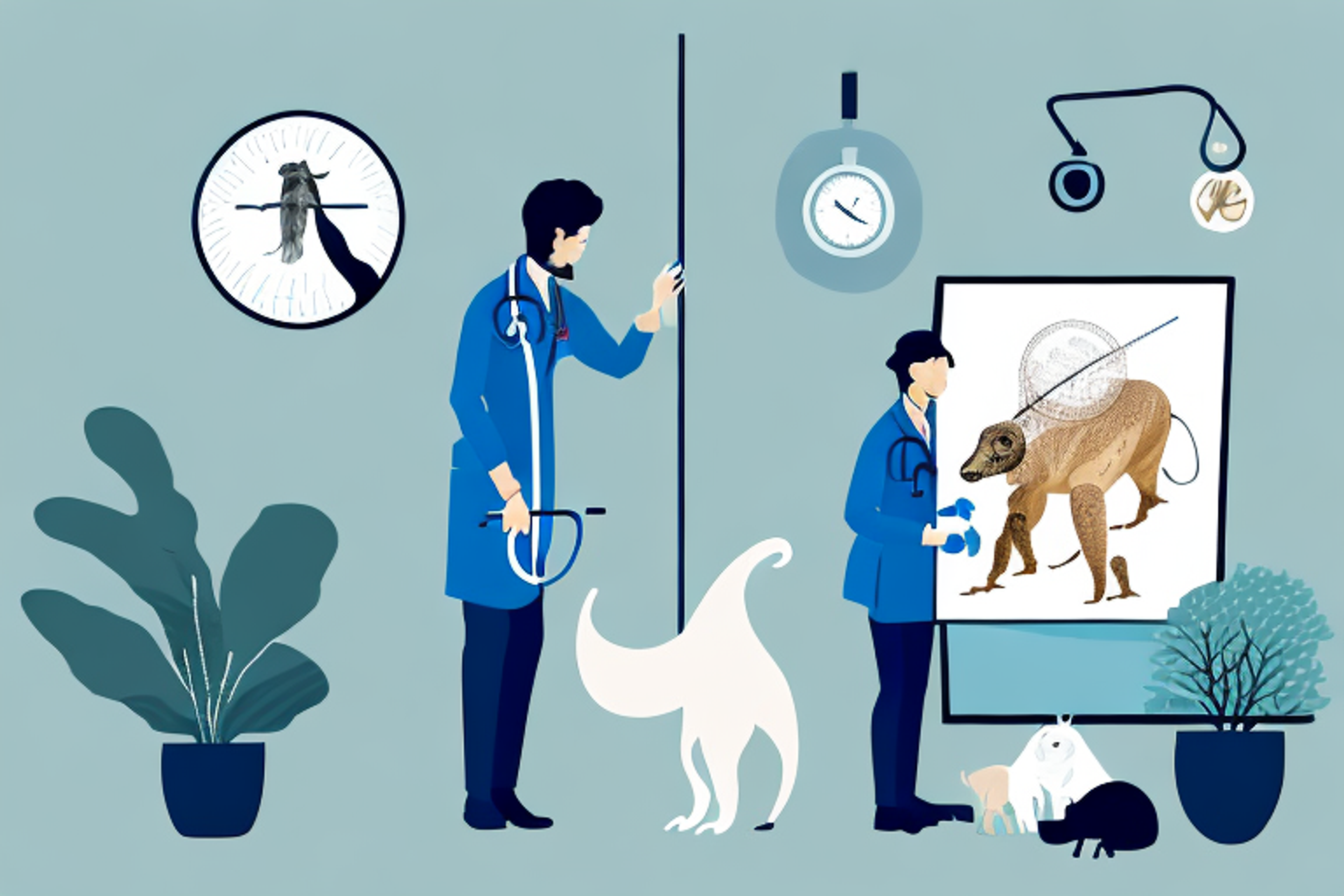Nephrologist: What It Is and How to Become One
If you're interested in becoming a nephrologist, this article is for you.
Posted April 10, 2025

Table of Contents
Nephrology is a specialized field of medicine that deals with the study, diagnosis, and treatment of kidney-related diseases and disorders. Nephrologists are experts in managing kidney-related problems and ailments, helping their patients manage symptoms, and prevent future complications. In this article, we will explore what nephrology is, the role of a nephrologist in healthcare, the educational requirements to become a nephrologist, the different specializations within the field, job outlook, salary, and benefits, common challenges faced by nephrologists, and emerging technologies in the field of nephrology.
What is Nephrology, and Why is it Important?
Nephrology is a vital field of medicine that plays a crucial role in maintaining overall health for the human body. Kidneys play an essential role in filtering waste from the body and regulating blood pressure and electrolyte balance. Nephrologists help individuals who suffer from kidney damage or related issues to manage their symptoms, prevent complications, and maintain overall health.
Additionally, nephrologists also play a critical role in the management of chronic kidney disease (CKD), which affects millions of people worldwide. CKD is a progressive condition that can lead to kidney failure if left untreated. Nephrologists work with patients to slow the progression of CKD, manage symptoms, and develop treatment plans that may include medication, lifestyle changes, and dialysis or kidney transplant if necessary. Early detection and treatment of CKD can significantly improve outcomes and quality of life for patients.
The Role of a Nephrologist in Healthcare
A nephrologist is responsible for diagnosing and treating conditions related to the kidney, such as acute kidney failure, kidney stones, chronic kidney disease, urinary tract infections, and other related conditions. They offer crucial consultation and supportive care to patients with kidney diseases, including dialysis and kidney transplantation.
In addition to their diagnostic and treatment responsibilities, nephrologists also play a vital role in educating patients about kidney health and disease prevention. They work closely with patients to develop personalized treatment plans that address their unique needs and medical history.
Nephrologists also collaborate with other healthcare professionals, such as primary care physicians, urologists, and transplant surgeons, to provide comprehensive care to patients with kidney diseases. They may also conduct research to advance the understanding of kidney diseases and develop new treatments.
How to Know If Nephrology is the Right Career for You
If you are interested in pursuing a career in nephrology, you need to have excellent analytical skills, strong communication and interpersonal skills, and the ability to work in a team. A strong work ethic, attention to detail, and critical thinking ability are crucial to success in this field. Additionally, if you have a genuine interest in helping patients with kidney-related problems, then pursuing a career in nephrology may be a great fit for you.
It is important to note that nephrology is a highly specialized field that requires extensive education and training. To become a nephrologist, you must complete medical school, a residency in internal medicine, and a fellowship in nephrology. This can take up to 10 years of post-secondary education and training. However, the rewards of this career can be significant, as you will have the opportunity to make a real difference in the lives of patients with kidney disease.
What are the Educational Requirements to Become a Nephrologist?
The educational requirements for becoming a nephrologist typically begin with a four-year undergraduate degree in pre-med or health sciences. After that, aspiring nephrologists need to complete an additional four years of medical school and an internal medicine residency program for an additional three years. Lastly, nephrology residency training is an additional two to three years.
During their training, nephrologists learn how to diagnose and treat kidney diseases, including chronic kidney disease, kidney stones, and kidney failure. They also learn how to manage patients who require dialysis or kidney transplants. Nephrologists work closely with other healthcare professionals, such as urologists, transplant surgeons, and dietitians, to provide comprehensive care to their patients.
The Importance of Gaining Medical Experience Before Becoming a Nephrologist
Before you start practicing as a nephrologist, gaining medical experience in a related field is critical for building your skills and knowledge base. The more experience you have, the better equipped you will be to deal with complex kidney-related disorders and diseases, and the stronger your medical practice will be.
One way to gain medical experience in a related field is to work as a renal nurse or technician. This will give you hands-on experience with patients who have kidney-related disorders and diseases, and allow you to learn from experienced nephrologists. Additionally, volunteering at a kidney-related organization or participating in research studies can also provide valuable experience and knowledge in the field.
What Skills Do You Need to Be a Successful Nephrologist?
A successful nephrologist needs to have excellent analytical and problem-solving abilities, expert knowledge of kidney-related disorders and diseases, strong communication and interpersonal skills, and the ability to work in high-pressure situations. Additionally, a strong work ethic, attention to detail, and critical thinking skills are crucial for success.
Another important skill for a successful nephrologist is the ability to stay up-to-date with the latest advancements in the field. This requires a commitment to ongoing education and professional development, as well as a willingness to collaborate with colleagues and participate in research studies.
Furthermore, a successful nephrologist must possess strong leadership skills, as they often oversee a team of healthcare professionals, including nurses, technicians, and other specialists. Effective leadership involves clear communication, delegation of tasks, and the ability to motivate and inspire others to provide the best possible care for patients.
How Long Does It Take to Become a Nephrologist?
The path to becoming a nephrologist can take anywhere between a total of 11 to 12 years. This includes undergraduate education, medical school, residency, and nephrology fellowship training. While it may seem like a long journey, the resulting career can be incredibly rewarding and fulfilling.
During their undergraduate education, aspiring nephrologists typically major in a science-related field, such as biology or chemistry. They then attend medical school, which typically takes four years to complete. After medical school, they complete a residency program, which can last anywhere from three to seven years, depending on the specialty. During this time, they gain hands-on experience in diagnosing and treating patients with kidney-related conditions.
Once they have completed their residency, aspiring nephrologists then complete a nephrology fellowship, which typically lasts two to three years. During this time, they receive specialized training in the diagnosis and treatment of kidney-related conditions, including kidney disease, hypertension, and electrolyte imbalances. They also learn how to perform kidney biopsies and manage patients who require dialysis or kidney transplants.
The Different Specializations Within the Field of Nephrology
The field of nephrology includes several different specialized areas of expertise, including adult nephrology, pediatric nephrology, dialysis, kidney transplantation, and interventional nephrology. Working in one of these specialized fields can provide aspiring nephrologists with the opportunity to hone their skills and expertise in particular areas.
What is the Job Outlook for Nephrologists?
The job outlook for nephrologists is strong, with a projected growth rate of 7% from 2019 to 2029. The demand for nephrology services is driven by an aging population and the increasing prevalence of kidney-related diseases, particularly in chronic kidney disease and end-stage renal failure.
Understanding the Salary and Benefits of Being a Nephrologist
Nephrologists are highly skilled professionals and are well-compensated for their expertise. According to the Bureau of Labor Statistics, the median salary for physicians and surgeons, which includes nephrologists, is approximately $208,000 per year.
Tips for Landing Your First Job as a Nephrologist
Landing your first job as a nephrologist requires a combination of networking, building up your experience and skills, and creating a strong resume and cover letter that showcases your unique skills and abilities. You should also attend medical conferences, keep up to date with the latest research and treatments, and connect with other nephrologists in the field to increase your chances of success.
Continuing Education and Training Opportunities for Nephrologists
Continued education and training are critical for staying up to date on the latest treatments and research and maintaining expertise in nephrology. Nephrologists should consider participating in online courses, attending conferences, and pursuing additional post-doctoral training to advance their knowledge and skills in the field.
Common Challenges Faced by Nephrologists and How to Overcome Them
Nephrologists face several common challenges, including high-pressure situations, long hours, stressful work environments, and difficult patients. Developing self-care strategies, taking time for rest and relaxation, and seeking support from colleagues and family can help nephrologists overcome these challenges and maintain a healthy work-life balance.
The Future of Nephrology: Emerging Trends and Technologies
The field of nephrology is constantly evolving, with new research, treatments, and technologies emerging regularly. Some exciting new developments in the field include the use of telemedicine to treat patients remotely, advancements in artificial kidney technology, and the increasing use of biologics to prevent or treat kidney-related diseases and disorders.
In conclusion, becoming a nephrologist is a challenging but rewarding career path that offers opportunities for growth and professional development. By staying up-to-date on the latest developments in nephrology and developing necessary skills and expertise, aspiring nephrologists can successfully navigate this exciting field and provide quality care for their patients.











